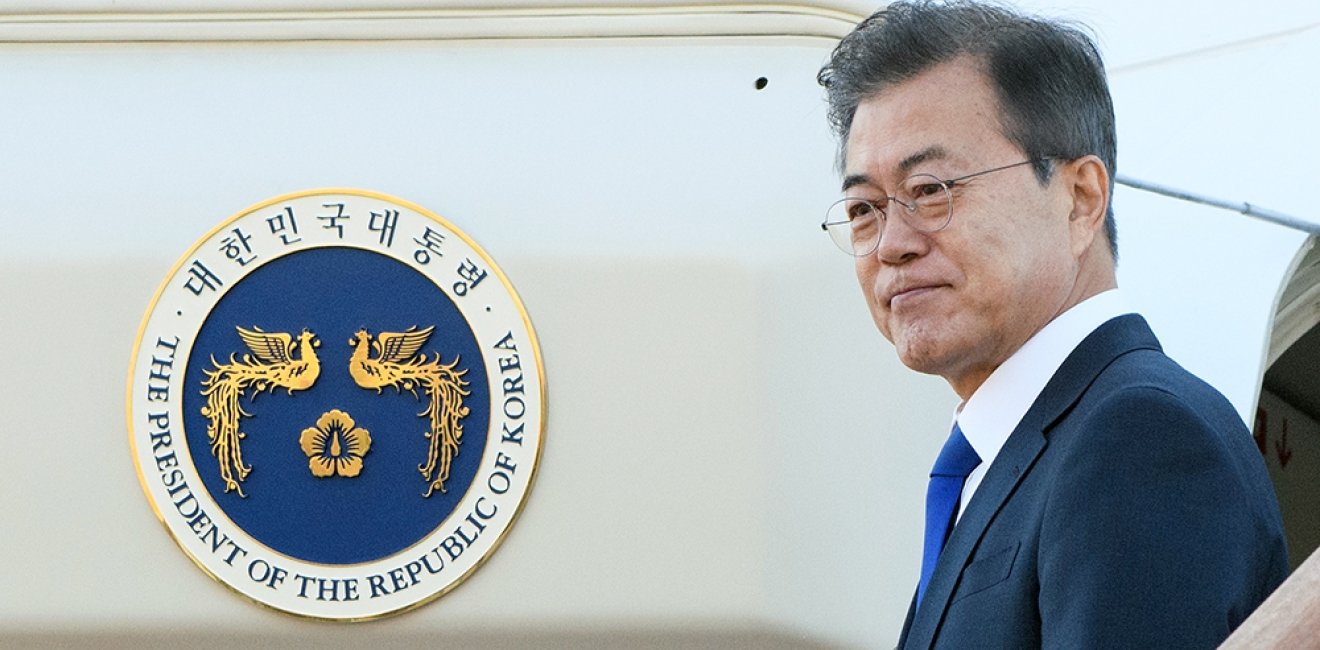
A blog of the Indo-Pacific Program
It’s the Economy, Stupid! A South Korean Version?
Politics in South Korea show a great deal of similarities with those of the United States. President Moon Jae-in has to confront the polarization of political parties and the press. The conservative opposition party is busy criticizing Moon for being weak on North Korea. The mainstream media is wasting no time in underscoring any sign of disagreements between Washington and Seoul.
One big difference is that swing voters are critical in South Korea, whereas swing states are pivotal in American politics.
Moon needs to take care of independent voters in South Korea. Their concerns are not just limited to nuclear weapons. If President Moon appears to be only obsessed with Chairman Kim Jong Un and his demands, non-partisans in South Korea might feel that Moon is out of touch with their difficulties.
Sound familiar? As the economy is increasingly heading south, President Moon has to talk more about jobs and the economy. I don’t like to see Moon’s embrace of Kim shake his presidency.
Alliance, Alliance, Alliance!
To be honest, I totally understand how President Moon feels towards the conservative media in South Korea accusing him of weakening the U.S.-South Korea alliance. First of all, it is almost impossible for a Republican commander-in-chief and a Progressive president across the Pacific Ocean to speak in the same voice all the time. Also, it is Trump, not Moon, who has canceled joint military exercises and has described South Korea as paying less and gaining more.
Nevertheless, President Moon and his advisors should be smart enough to understand that minimizing any potential disharmony with Washington is equivalent to maximizing the negotiation power towards Pyongyang. South Korean government officials should not waste their time visiting Washington for a photo-op simply to reassure the strength of the U.S.-South Korea alliance. Debating whether South Korea should be mediator or facilitator is just pointless. The goal is complete denuclearization of North Korea -- and that’s it.
From Going First to Going Right
President Moon knows that the distrust between the United States and North Korea is deeply rooted. The Kim regime considers a U.S.-driven “big deal” as a proposal where “we (the United States) won’t give up anything until you (North Korea) give up everything.” Few in Washington seem to believe that Pyongyang is sincere about the commitment to denuclearization. Thus, Moon needs to persuade Trump and Kim that there is only one option left: “trust but verify.”
The question of who’s going first will never be resolved if we stick to a “big deal” plan, often defined as a one-shot game. Instead, let’s find out who is doing right towards complete denuclearization. Moon’s visit with Trump will be a huge success if he can somehow shift the current North Korea theme from a big deal to a comprehensive plan. I know that Moon in Washington will do his best to “Save President Trump.” And yet, we should ultimately move from personal diplomacy to institutional agreement. The sooner, the better.
Jungkun Seo is a Fulbright Fellow at the Wilson Center and an associate professor of political science at Kyung Hee University in Seoul, South Korea.
The views expressed are the author's alone, and do not represent the views of the U.S. Government or the Wilson Center. Copyright 2018, Asia Program. All rights reserved.
Author

Associate Professor of Political Science, Kyung Hee University, Seoul, Korea

Indo-Pacific Program
The Indo-Pacific Program promotes policy debate and intellectual discussions on US interests in the Asia-Pacific as well as political, economic, security, and social issues relating to the world’s most populous and economically dynamic region. Read more


Hyundai Motor-Korea Foundation Center for Korean History and Public Policy
The Center for Korean History and Public Policy was established in 2015 with the generous support of the Hyundai Motor Company and the Korea Foundation to provide a coherent, long-term platform for improving historical understanding of Korea and informing the public policy debate on the Korean peninsula in the United States and beyond. Read more





